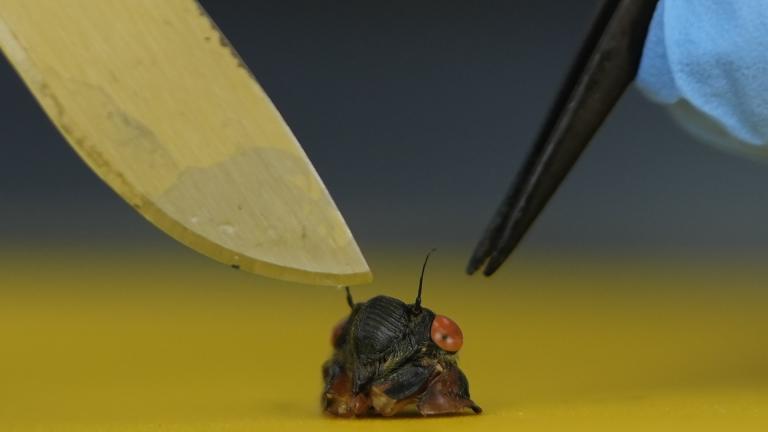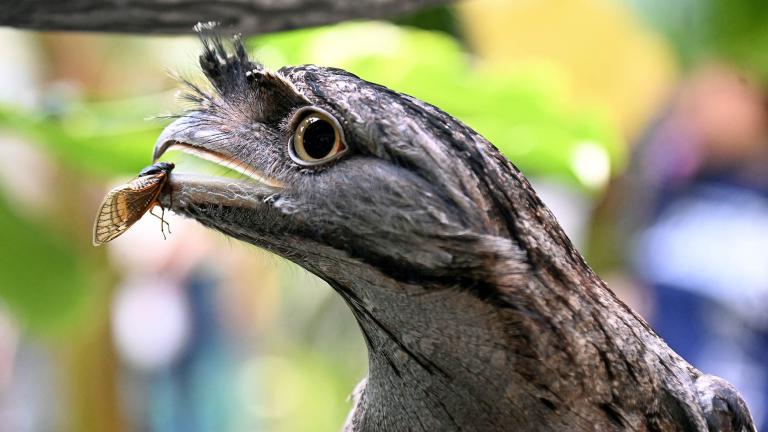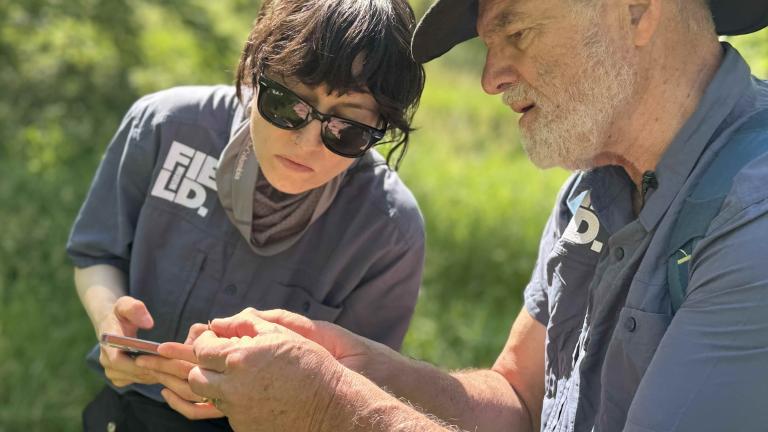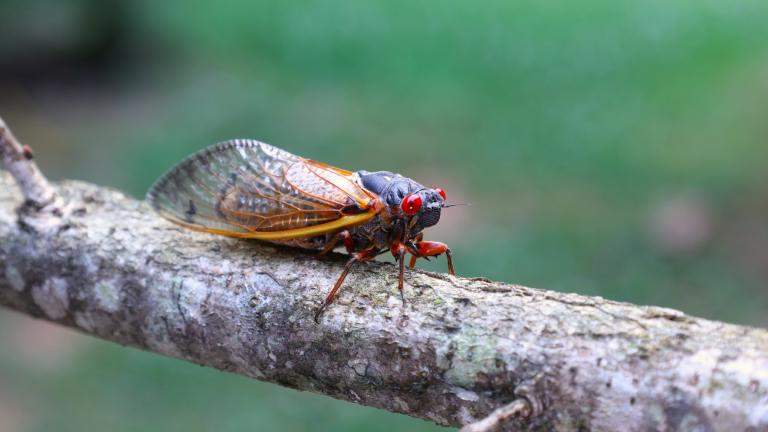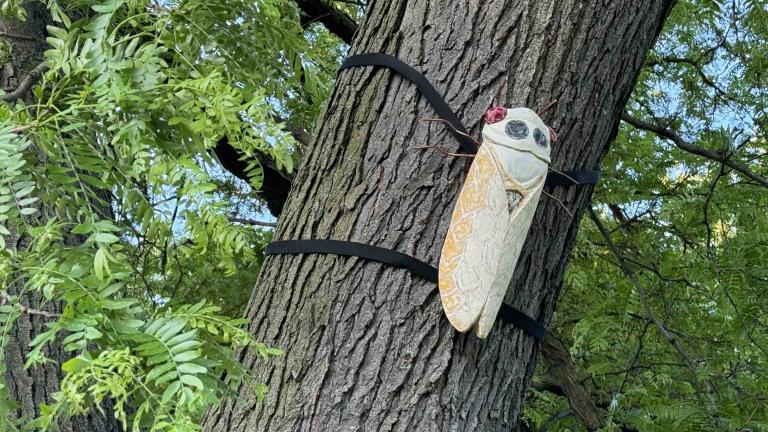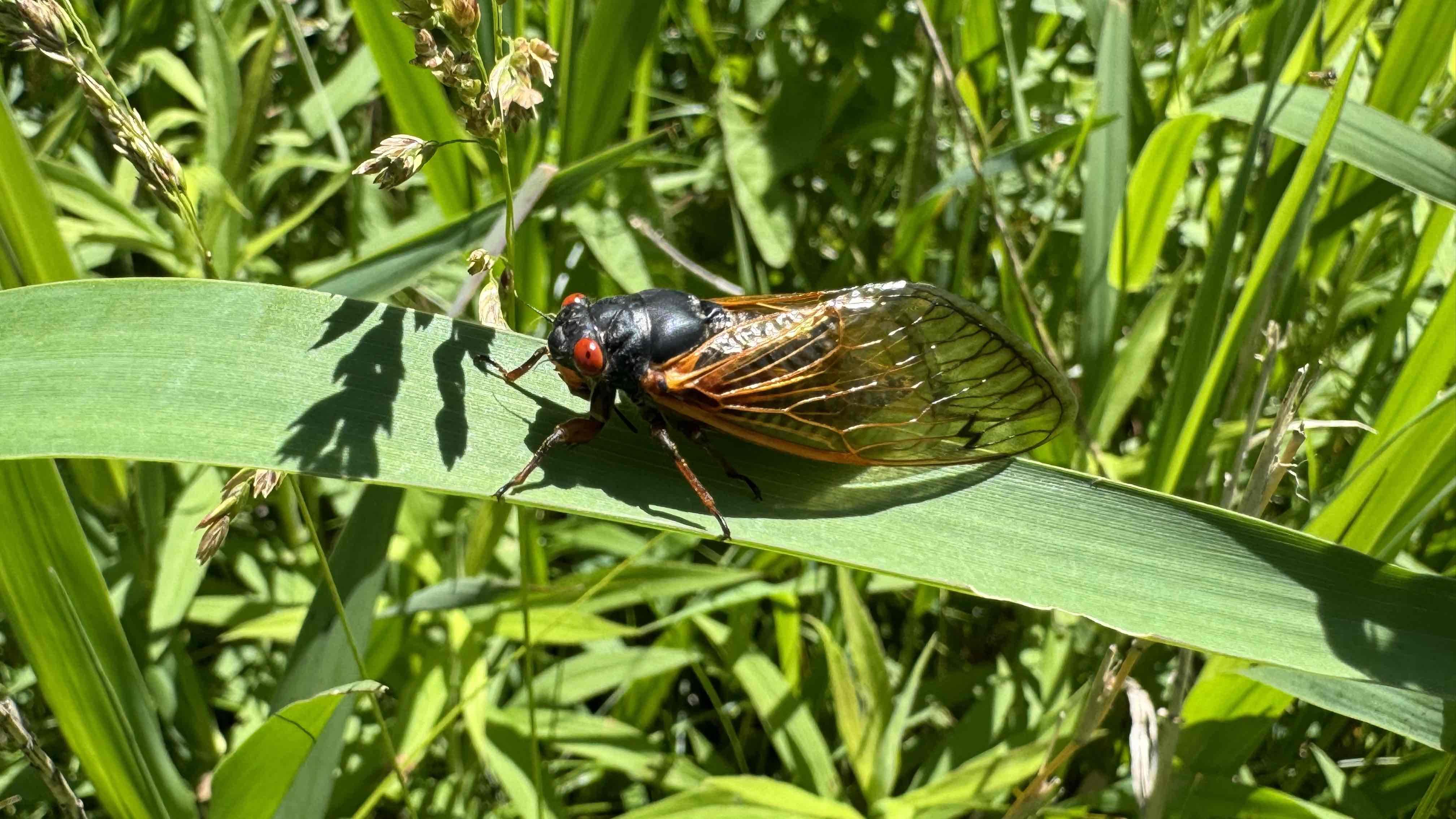 A cicada’s lifespan is short, from alive and thriving to dead and rotting in a matter of weeks. (Patty Wetli / WTTW News)
A cicada’s lifespan is short, from alive and thriving to dead and rotting in a matter of weeks. (Patty Wetli / WTTW News)
We’re approaching the halfway mark of the great cicada emergence of 2024, and while some folks are still reveling in the excitement of the dual appearance of Broods XIX and XIII, others are up to their nostrils in dead bugs.
Members of the first wave of cicadas have done their thing: They came, they molted, they screamed, they bred, and now they’re dying.
“As much as they’re out having their fun, per se, they have a very short lifespan of as little as two weeks or less,” said Tom Tiddens, plant health care supervisor at Chicago Botanic Garden.
So how to deal with the carcasses?
The most eco-friendly solution is to let them decay in place, according to Chris Dietrich, Illinois’ state entomologist.
“Dead cicadas make great fertilizer,” full of organic matter and nutrients, Dietrich said.
Think of it as the bugs returning the favor to the trees that harbored them for 17 years underground.
“These cicadas have been feeding on our trees and drawing nutrients from the roots,” Tiddens said. “Now that they’re dying they’re going to actually help the environment a little bit and give back. I like to put this positive spin on it: They’ve done all this robbing from the trees and now they’re going to give back a little.”
But what about the ones dying on sidewalks and driveways? That’s not helping anyone.
There are a couple of options, Dietrich and Tiddens said.
— Vacuum (with a Shop-Vac or equivalent) or sweep them up and toss them into your compost bin or pile.
— Or sweep or blow the cicadas off the pavement and onto the grass or into flower beds where their natural fertilizer will be put to good use.
“Think of cicadas as almost like fallen leaves, let’s just recycle them,” Tiddens said. “A great thing to do if you have a mulching mower would be to blow those cicadas off the driveway and off the paths and into the lawn and then use your mulching mower. And actually they’ll break down quickly and won’t hurt your mower.”
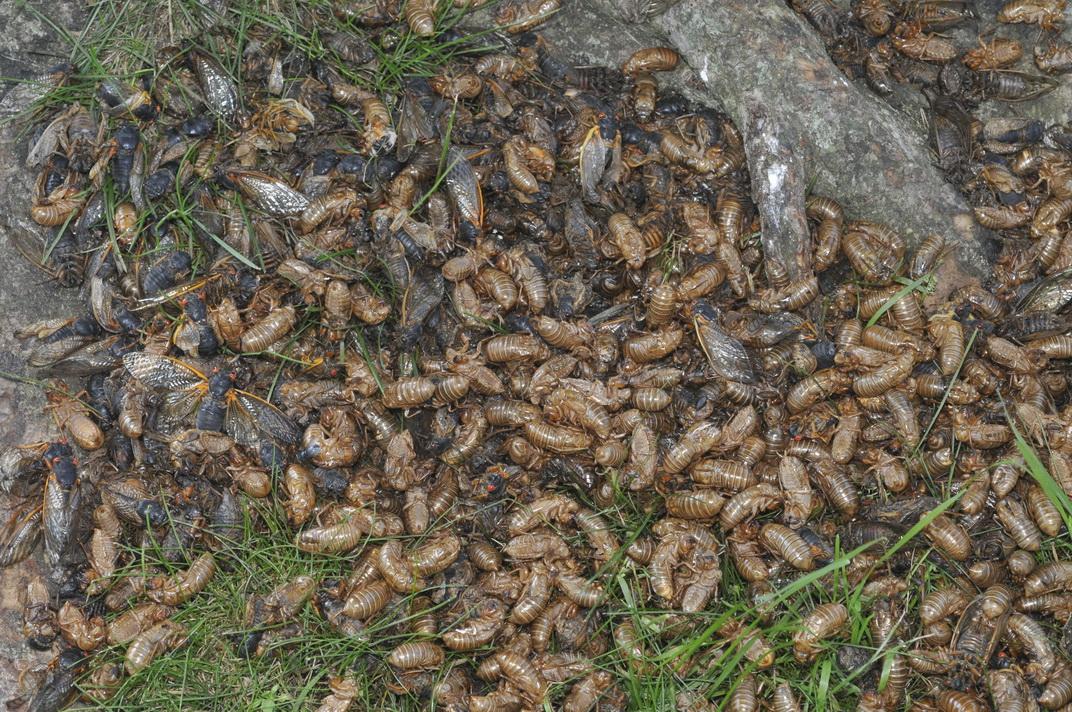 (AFPMB / Flickr Creative Commons)
(AFPMB / Flickr Creative Commons)
As for the smell, the usual remedies for foul household odors — like vinegar, baking soda or even Febreze — aren’t practical.
The worst of the stench comes from the rotting bugs collecting in mounds, particularly under trees, according to Tiddens.
“If they’re spread out, that’s not the case,” he said, so he recommended dispersing them across a lawn. (And then bring back the mulching mower.)
Just take care not to blow the corpses toward your house or patio, Tiddens advised, or you may wind up dealing with another nuisance.
“One thing I have noted and I want to pass along is a lot of the dead and dying cicadas may attract ants,” Tiddens said. “Sort of like when you have a picnic and you drop a hot dog and you forget about it, after a few hours, there’s a hundred ants on it — that could happen with cicadas, too.”
People could also try burying cicadas under soil to alleviate the smell, Dietrich said, or, worst case, vacuum them up, bag them and put them in the trash.
For those who feel under siege by the cicada swarm, there is an end in sight.
“As quickly as they come, they’ll be gone,” Tiddens said, “and we’ll have forgotten all about it.”
Contact Patty Wetli: @pattywetli | (773) 509-5623 | [email protected]

